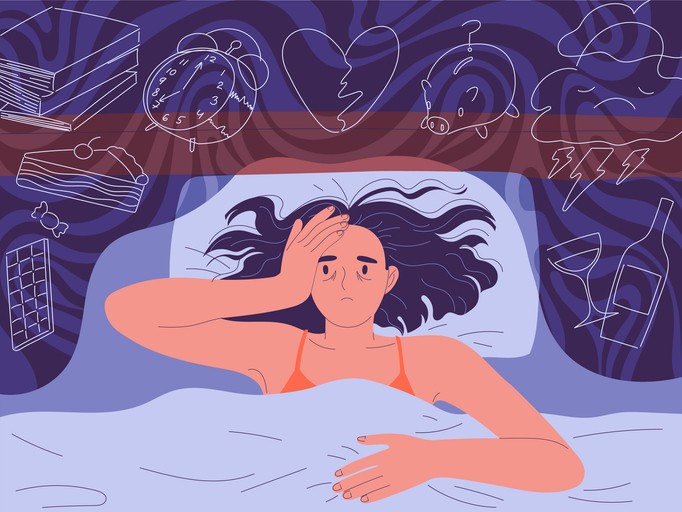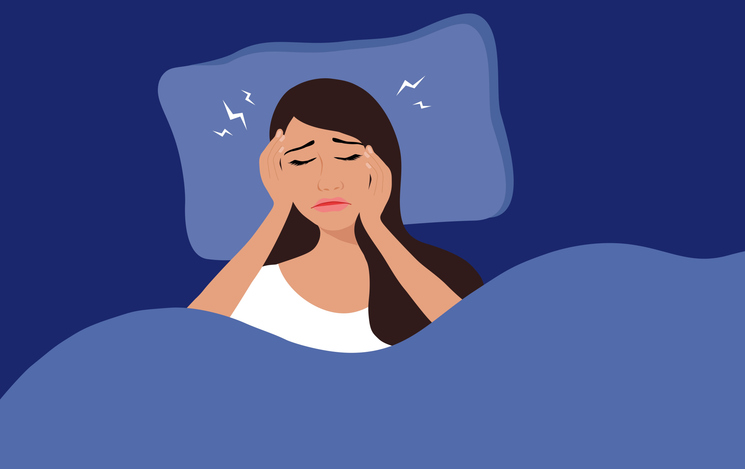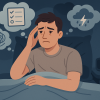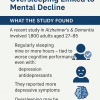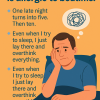Sleep Efficiency
It’s not just how long you’re in bed—it’s how well your body uses that time.
📌 What is Sleep Efficiency, and Why Is It Important?
Sleep efficiency is the percentage of time spent asleep compared to the total time spent in bed attempting to sleep. It measures how effectively you use your sleep time.
Why does it matter? Sleep efficiency helps you understand if your sleep patterns are healthy or disrupted, impacting your overall health and daytime functioning. Higher sleep efficiency usually correlates with feeling rested and having good health outcomes, whereas low sleep efficiency is linked with chronic sleep disorders, impaired daytime functioning, increased stress, and health risks like cardiovascular disease and mood disorders.
✅ Key Insight:
- High sleep efficiency → Better health, improved mood, cognitive functioning
- Low sleep efficiency → Poor health outcomes, fatigue, cognitive impairment, emotional distress
To get an accurate and reliable measurement of sleep efficiency, it typically takes about:
✅ 7 to 14 days
Why this time frame?
- Your sleep can vary from day to day, so a single night or even a few nights might not give you a complete or accurate picture.
- A period of one to two weeks allows enough time to capture your typical sleep patterns and smooth out any unusual events or outliers.
Our app features an easy-to-use Sleep Log, helping you effortlessly track your nightly sleep patterns, calculate your sleep efficiency, and clearly identify areas for improvement.
📌 Calculating Sleep Efficiency
Here's a simple formula for calculating Sleep Efficiency:
🔹 Example:
- Total Sleep Time = 6 hours
- Total Time in Bed = 8 hours
✅ Ideal sleep efficiency is generally 85% or higher.
- Total Sleep Time (TST): Actual time spent sleeping.
- Total Time in Bed (TIB): Time spent in bed intending to sleep.
✅ Good Sleep Efficiency Scores:
- 85% or higher: Considered good and indicates healthy sleep.
- 80%-85%: Average; some improvements could be made.
- Less than 80%: Typically signals poor sleep efficiency and may indicate insomnia or other sleep disturbances.
📌 Factors That Cause Poor Sleep Efficiency
Several common factors typically contribute to low sleep efficiency:
🔹 Behavioral Factors:
- Irregular sleep schedules
- Spending excessive time awake in bed
- Taking frequent or long naps
- Engaging in alerting activities before bedtime (e.g., screen use)
🔹 Environmental Factors:
- Uncomfortable sleep environment (noise, light, temperature)
- Poor sleep hygiene
🔹 Psychological and Physiological Factors:
- Anxiety, stress, depression
- Chronic pain or illness
- Sleep disorders such as sleep apnea or restless leg syndrome
- Medication side effects
- Lifestyle factors, including caffeine or alcohol consumption close to bedtime.
Help is here - Get A Personalized Sleep Plan
📌 Evidence-Backed Strategies to Improve Sleep Efficiency
Here are scientifically-supported methods to enhance sleep efficiency:
1️⃣ Stimulus Control Therapy
- Goal: Train your brain to associate bed with sleep rather than wakefulness.
- Action Steps:
- Use your bed only for sleep (and intimacy).
- Get out of bed if you can't fall asleep within about 20 minutes, engage in quiet, non-stimulating activities, then return when sleepy.
2️⃣ Sleep Restriction Therapy
- Goal: Consolidate sleep by limiting the total time in bed to match your actual sleep time, gradually increasing as sleep efficiency improves.
- Action Steps:
- Start by restricting your bedtime to the hours you actually sleep.
- Increase bedtime by increments as efficiency improves.
3️⃣ Cognitive Restructuring and Mindfulness Techniques (CBT-I and ACT principles)
- Goal: Reduce anxiety and negative thinking about sleep.
- Action Steps:
- Practice mindfulness meditation.
- Reframe unhelpful thoughts about sleep, reducing anxiety and promoting relaxation.
4️⃣ Sleep Hygiene Practices
- Goal: Improve the sleep environment and habits.
- Action Steps:
- Maintain a consistent sleep-wake schedule.
- Avoid caffeine, nicotine, and alcohol in the evening.
- Establish a calming bedtime routine.
- Ensure the sleep environment is cool, dark, quiet, and comfortable.
📌 Sleep Efficiency, Health, and Quality of Life
High sleep efficiency is closely linked with:
- Improved memory, cognitive performance, emotional stability, and physical health.
- Better overall quality of life, including enhanced relationships, productivity, and mental health.
Conversely, low sleep efficiency is correlated with increased risk for obesity, diabetes, cardiovascular diseases, weakened immunity, and psychological issues like anxiety and depression.
📌 Expert Recommendations
Clinical authorities, including the National Institutes of Health and sleep medicine professionals, strongly advocate Cognitive Behavioral Therapy for Insomnia (CBT-I) as the first-line treatment to improve sleep efficiency. CBT-I has demonstrated lasting benefits compared to medication alone, especially when combined with acceptance-based techniques such as Acceptance and Commitment Therapy (ACT), which enhance flexibility and reduce sleep-related anxiety.
🚩 Final Note:
Improving your sleep efficiency is a powerful step toward better health and well-being. By tracking your sleep patterns and applying evidence-backed strategies, you can significantly enhance your sleep quality, leading to a healthier, more energized, and fulfilling life.

